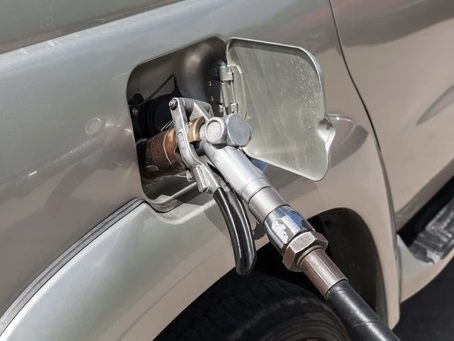Posted on 7/30/2020

Your brake system is made up of multiple parts that all need to work together to bring your vehicle to a safe stop. It is crucial that your vehicle braking system is kept in good condition to guarantee both you, your passengers and other drivers remain safe on the road. Your brake pads and rotors should last you at least 2 years or 24,000 miles, but the numbers can differ depending on driving styles and driving conditions. Luckily for you, your brake system will likely start exhibiting minor symptoms that you can use as an indicator that it may be time to replace your brakes. Here are five common signs it’s time to service your brakes. 1. Squeaking or squealing coming from brakes and when stopping When your brake pads are near the end of their life cycle, they will start making a squeaking noise. This noise is usually caused by a built in wear indicator that is specifically designed to make a ... read more
Posted on 7/14/2020

These comparisons are meant to illustrate the cost effectiveness of each fuel for the consumer, and to weigh it against its environmental impact. The end result will help you decide which of the two most widely available alternative fuels (battery and LPG) is right for you. Diesel and gas are included -- gas, because we need something to compare to, and it is the standard automotive fuel, and diesel, because it is somewhat standard for commercial use, especially when it comes to hauling heavy loads. Energy density These numbers vary only slightly according to different sources. With that in mind, these numbers can serve as good benchmarks. The difference between diesel, gas and propane is small. The energy density of current EV (electric vehicle batteries) is much, much smaller -- about 1/100th that of fuel. Figures are given as megaJoules per kilowatt. LPG: 50.2 Gas: 46.5 Diesel: 45.8 Battery: 0.3 Yes, you read that right… 0.3. But there is much more to the story. Energ ... read more
Posted on 6/9/2020

The conversion to propane is less of big deal than you might think. The engine itself will run almost exactly the same and doesn’t need to be modified. The main change is the fuel delivery system, which brings fuel from the storage tank into the combustion chamber. The combustion chamber is where the force that runs the wheels is generated. Revolutions are created by the reciprocating (back-and-forth) motion of the motor’s pistons. This motion is powered by the carefully timed series of explosions that is your fuel igniting under heat and pressure. These explosions are controlled by the injection system, which carefully meters the amount of fuel being injected into the combustion chamber. An explosion that generates a precise amount of force results from the fuel being vaporized as it is injected. Converting to a propane-powered engine The conversion requires a new fuel tank, new fuel delivery lines, new fuel rails and injectors, and a computer designed to regulate the air-to-fuel rati ... read more
Posted on 5/12/2020

Propane is a fossil fuel from a group of fuels known as LP gas, or liquid petroleum. Propane is a by-product of petroleum and natural gas processing which takes the form of a gas under normal environmental conditions. For storage and transportation, it is compressed into liquid form. Most people are familiar with it as a fuel for gas grills, RV appliances and forklifts. But propane offers huge upside as an alternative fuel for vehicles, especially for commercial fleets. If that makes you wonder why its not used more commonly, realize that its low demand is part of what makes it more cost-effective. Savings As propane is a by-product of natural gas and crude, the price has a direct relation to the price of fuel. Propane usually hovers between 50-70% of the price of fuel (this could theoretically change if demand were to increase, but it will still be cheaper than gas). On top of a significant reduction in environmental impact, it affects your bottom line in a handful of ways. There’s an ... read more
Posted on 4/14/2020

How to test drive a used vehicle All of the things we recommend looking for, below, are important for three reasons: They may indicate a condition that needs work, thereby increasing the cost of ownership, and this might impact the price you’re willing to pay They help to paint an overall picture of the way the car has been treated and maintained They help to assess the reliability of what the seller tells you about the car. Does their story match up with what you can observe on your own This post only covers what to look for while driving the vehicle. For recommendations on what to look for while inspecting the vehicle, see this post. When you schedule your test drive, request that they don’t start the vehicle for an hour before you get there. Some used vehicles start with a much more reassuring sound and feel when they’re warmed up.Sellers might “get it out of the garage for ya” just before you ... read more